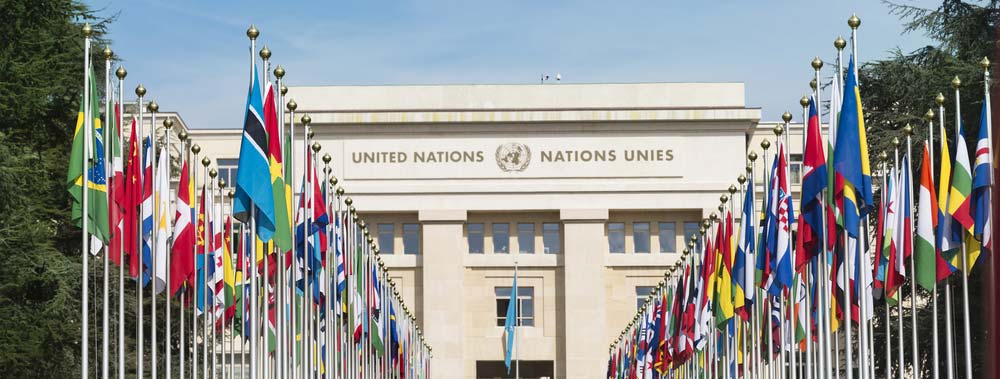On the occasion of the 2019 United Nations Day, the International Bar Association’s Human Rights Institute (IBAHRI) urges Member States to desist from undermining UN human rights bodies.
IBAHRI Co-Chair, Anne Ramberg Dr jur hc, commented: ‘The ongoing attempts by some UN Member States to weaken the UN human rights system amid global challenges to human rights is of deep concern to the IBAHRI. It is precisely at this point in time that efforts should be increased to support this body established, among other things, to create a world where different jurisdictions respect each other and adhere to international law. The IBAHRI calls on Member States to put an end to the undermining, and instead focus energies on elevating the UN, as well as protecting international human rights law and the mechanisms that promote and defend human rights.’
Set up in 1945 in the wake of the horrors of World War II, the founding nations’ main aims for the UN were to ensure international peace and security, and to develop friendly relations among nations based on respect for the principle of equal rights and the self-determination of peoples. Since its establishment, a number of adjunct UN bodies have been set up aimed at strengthening international human rights protections. These include committees of individuals that monitor the implementation of human rights treaties (treaty bodies) and independent human rights experts with mandates to report and advise on human rights from a thematic or country-specific perspective (special procedures). Together they are known as special mechanisms.

For a number of years, there has been a trend of shortfalls and cuts affecting the UN budget allocated to these human rights mechanisms. In 2019, the combination of delays in payments of some UN Member States’ assessed contributions to the regular budget, the UN General Assembly’s decision to apply a 25 per cent cut to the travel budget of UN representatives and other budget cuts may have adversely affected the capacity of various human rights mechanisms to carry out their mandates effectively. In April, the chairpersons of the ten human rights treaty bodies were informed that due to the financial situation, the autumn 2019 sessions of six treaty bodies would probably need to be cancelled. Although the sessions did take place, any cancellation of treaty body sessions would impair the realisation of the States’ reporting obligations, as set up in UN human rights treaties.
IBAHRI Director, Baroness Helena Kennedy QC, stated: ‘If States do not take their human rights obligations seriously and are not willing to engage constructively with the UN human rights mechanisms, these experts will be hampered in their ability to carry out their mandates effectively. The greatest factors influencing the effectiveness of the UN human rights mechanisms are the insufficient resources at their disposal and lack of cooperation by Member States. In this context, the IBAHRI calls on States to support the mandates in the performance of their activities and ensure that all human rights mechanisms have adequate resources to undertake their regular work as well as any additional tasks they are assigned.’
ENDS
Notes to the Editor
-
Click here to read The Open NGO letter regarding the critical funding gap affecting UN human rights mechanisms and the Office of the High Commissioner for Human Rights.
-
The International Bar Association’s Human Rights Institute (IBAHRI), an autonomous and financially independent entity, works to promote, protect and enforce human rights under a just rule of law, and to preserve the independence of the judiciary and the legal profession worldwide.
The IBAHRI launched its United Nations Programme in 2014, with the aim of informing and fostering lawyers’ engagement in UN mechanisms and strengthening the dialogue between states and the legal community on human rights.
-
The International Bar Association (IBA) – the global voice of the legal profession – is the foremost organisation for international legal practitioners, bar associations and law societies. Established in 1947, shortly after the creation of the United Nations, it was born out of the conviction that an organisation made up of the world's bar associations could contribute to global stability and peace through the administration of justice.
For further information please contact: